Роберт Бюттнер - Orphan's Destiny
Здесь есть возможность читать онлайн «Роберт Бюттнер - Orphan's Destiny» весь текст электронной книги совершенно бесплатно (целиком полную версию без сокращений). В некоторых случаях можно слушать аудио, скачать через торрент в формате fb2 и присутствует краткое содержание. Жанр: Боевая фантастика, на английском языке. Описание произведения, (предисловие) а так же отзывы посетителей доступны на портале библиотеки ЛибКат.
- Название:Orphan's Destiny
- Автор:
- Жанр:
- Год:неизвестен
- ISBN:нет данных
- Рейтинг книги:3 / 5. Голосов: 1
-
Избранное:Добавить в избранное
- Отзывы:
-
Ваша оценка:
- 60
- 1
- 2
- 3
- 4
- 5
Orphan's Destiny: краткое содержание, описание и аннотация
Предлагаем к чтению аннотацию, описание, краткое содержание или предисловие (зависит от того, что написал сам автор книги «Orphan's Destiny»). Если вы не нашли необходимую информацию о книге — напишите в комментариях, мы постараемся отыскать её.
Orphan's Destiny — читать онлайн бесплатно полную книгу (весь текст) целиком
Ниже представлен текст книги, разбитый по страницам. Система сохранения места последней прочитанной страницы, позволяет с удобством читать онлайн бесплатно книгу «Orphan's Destiny», без необходимости каждый раз заново искать на чём Вы остановились. Поставьте закладку, и сможете в любой момент перейти на страницу, на которой закончили чтение.
Интервал:
Закладка:
Glancing up and down the empty corridor, she said, “Jason — General Wander — you’re on holo to soothe people, not scare the pee out of them!”
“I just said ‘if.’”
“Except for Major Hibble, you’re the biggest expert alive on Slugs. The last five years were the most horrific in human history and you just told people they might come back. You have to watch what you say. The public believes you when you belch.”
“They should believe the truth! Even Howard thinks the Slugs may still be out there. Let him be your spokes-person.”
“You know Hibble. The public doesn’t want a hero with duct tape on his bedroom slippers. We may use him for hard news. But nobody under eighty watches hard news. It went out with paper newspapers.”
It was an old expression, and since the war, an inaccurate one. Paper newspapers had come back after the war cut commercial holo transmissibility.
She crossed her arms and sighed. “You needed more prep. I should have seen it coming. I thought the President told you in person that the world needed reconstruction, not panic.”
“President Lewis told me America needed reassurance. I’m not so sure I’m reassured, myself. What are we reconstructing?”
She sighed. “Okay. Rule number one. If you don’t want to see it on the Washington Post frontscreen, don’t say it.” Tway tugged her lip. “You know, you’re not stupid.”
“Thank you very much.”
“The underlying problem is you haven’t seen the world you came back to. We’ll educate you.”
“Will I like being educated?”
“You like the protein bars, don’t you?”
FIFTEEN
TWAY SCRUBBED THE REST of the morning talk shows. Forty-five minutes later, an Air Force executive jet rolled up to Tway and me on the tarmac at Reagan, shut down one engine while we boarded, then swung back out and shot south toward Florida.
I stared down at dead ochre hills, my forehead on the jet window’s cold, ancient plastic. Caterpillar-yellow specks of reconstruction equipment scurried like ants as we overflew the crater that had been Richmond. A real general knew how to deal with the media. A real general understood the interface between his civilian superiors and the electorate. I hadn’t even lived long enough to vote for President.
Tway, facing me in an oversized leather recliner, leaned forward and pressed the steward call button on her seat arm. Posh. The business of government was booming. In American-style democracy, government feeds on misery. People who don’t need help don’t need government, or so they think. People in trouble do, or so they think.
Need a crater the size of Richmond cleared? Call Washington. Or, at least, call a consortium of contractors hired by Washington. Want to invent cold-and-drought-resistant wheat? Apply for a federal grant!
Even so, fuel was scarce so Washington traffic during the ride in from Reagan had been sparce. Bureaucrat pedestrians shuffled home from jobs where they allocated scarcity, bundled in long coats in the dead of D.C. summer. Buildings hunkered in the chill, as gray as the sky, unrelieved by a green leaf or a yellow dandelion. Depressing as that ride had been, beyond the Beltway there was only the very scarcity the D.C. bureaucrats were allocating.
President Lewis was trying to revive a flat world. Maybe his work was noble.
But my heart thumped. After all the death and destruction I had been through, what did he and the world want from me now?
Tway cleared her throat. “We need to understand each other.”
“We can’t. I’m no politician.”
“That’s why we need to talk.”
“We already did.”
The flight steward appeared and Tway held up two fingers. “At the least, General, I owe you a drink.”
My stomach growled. “And a sandwich?”
She shook her head. “Protein bar.”
The steward walked aft to the galley.
“Ms. Tway, who are you?”
She nodded. “Fair question. I’m media advisor to the National Security Council. For this assignment I report directly to the President of the United States. I have a master’s in media science from Stanford. In the last twelve years, I’ve remade congressmen, colonels, and captains of industry and saved them from PR disaster. Some of them sulked like thirteen-year-olds, too. I’ll save you, anyway. Because it’s the right thing to do for the world.” She paused. “But you think I’m a duplicitous bitch.”
I shook my head. “Not duplicitous.”
She smiled. “Infantry is an unforgiving business, isn’t it?”
I shrugged. “I can’t say. It’s the only business I know.”
“Well, my business, even though I do it in marble conference rooms and cozy bars, is unforgiving, too.”
“Sure. Raping the truth is a full-time job.”
She sighed as the steward pulled out a side table and set out martinis between us, frosted glasses and little crystal pitchers of gin set in individual silver ice buckets.
Tway waved him off, reached across the table, and poured one pitcher into my glass, then filled her own and raised it. “To the truth, then. Long may it wave, General.”
I held my glass up, crystal sang as we touched rims and we sipped.
“Generals have responsibilities. All I have are protein bars and stars on my collar.”
“We know you’d be content as a lieutenant, but the public wants you to be a general, so a general you stay. For the moment. You’re a hero. You and the others like you saved the human race.” She uncurled her index finger from the stem of her glass and pointed at me. “That’s the God’s truth.”
“And this road show is the administration’s way of thanking me?”
She stared at the ceiling and blinked. “Your chip says you earned a correspondence master’s in military history.”
I nodded.
“During what half century of peace did America spend the greatest percentage of its gross national product on national defense?”
“I don’t think anybody knew what GNP was until the 1940s. So I’d say the last half of the 1900s.”
Tway nodded. “You are smart. In 1945, we won the most destructive war in history. But we were so paranoid about making sure it never happened again, we squandered our capacity to rebuild a better world to fight a ‘Cold War.’”
“I don’t buy that. They accomplished a lot in those years.”
She steepled her fingers. “But what could they have accomplished? The western democracies hung humanity from a cross of iron.”
I recognized the quote. Dwight Eisenhower, a Cold War President, said it in a speech in 1953 about balancing guns and butter.
But I thought of Eisenhower as a general. Everything that I, as a general, wasn’t. Eisenhower orchestrated the resources of pre-environmental society to invade Europe. He juggled egos, obscure today but monumental at the time, like de Gaulle and Montgomery. I don’t think Ike ever fired a shot himself. Eisenhower and I had as much in common as a puppy had in common with Einstein.
Tway continued. “Jason, we stand today upon the threshold mankind stood upon in 1945. Defense industries and those who serve them want to keep spending on space-capable ground forces. To protect against a threat you and the GEF obliterated over two years ago. We don’t need to invade Mars.”
How many times had I read that generals prepared to fight the last war? I couldn’t disagree with Tway. As a post-war infantryman, I already felt like a 180-pound dinosaur. The monthly cost of maintaining one space-capable infantryman would probably pay the prescription drug bill for sub-Saharan Africa for a decade.
Tway swirled her martini. “Sensible people want to redirect those defense resources to rebuild the world. The stakes are more than important.”
Читать дальшеИнтервал:
Закладка:
Похожие книги на «Orphan's Destiny»
Представляем Вашему вниманию похожие книги на «Orphan's Destiny» списком для выбора. Мы отобрали схожую по названию и смыслу литературу в надежде предоставить читателям больше вариантов отыскать новые, интересные, ещё непрочитанные произведения.
Обсуждение, отзывы о книге «Orphan's Destiny» и просто собственные мнения читателей. Оставьте ваши комментарии, напишите, что Вы думаете о произведении, его смысле или главных героях. Укажите что конкретно понравилось, а что нет, и почему Вы так считаете.

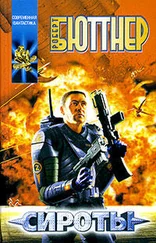

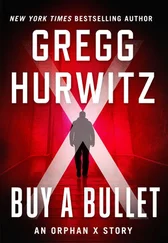
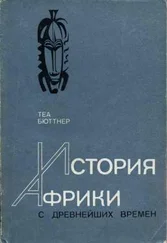
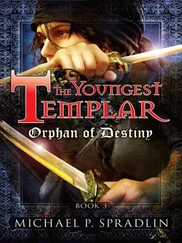
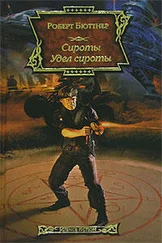
![Дэн Бюттнер - Где живет счастье [Правила жизни самых счастливых людей планеты] [litres]](/books/395574/den-byuttner-gde-zhivet-schaste-pravila-zhizni-samyh-thumb.webp)



